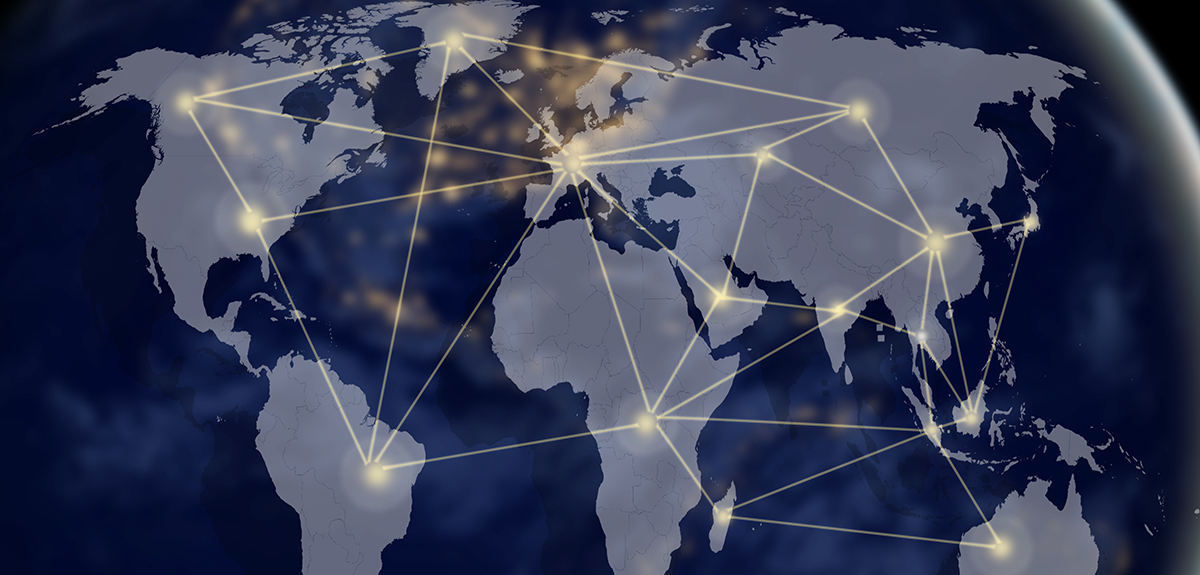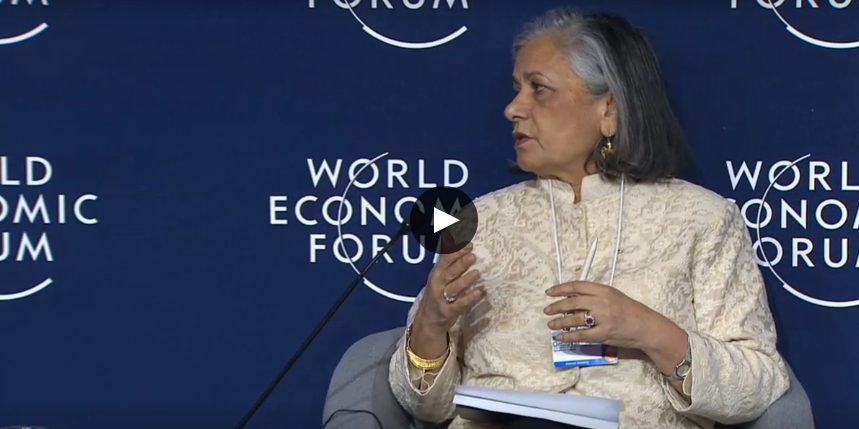How Davos helps to share Canadian knowledge with the world

Senior government officials, entrepreneurs, and business and cultural leaders from around the world gathered together in Davos, Switzerland for the annual World Economic Forum that began on January 17, 2017.
The conference brings together delegates from countries all over the world who exchange ideas that can lay the foundation for concerted action and stronger, more effective policies.
Senator Ratna Omidvar, an expert on diversity and immigration, is participating at the conference as the co-chair of the World Economic Forum’s Global Future Council on Migration.
The convening in Davos is a knowledge exchange between Canada and the world, she said.
“I am interested in listening to other people and bringing home some really good perspective and ideas.”
Senator Omidvar will be participating in three panels, all focussing on aspects of migration and identity.
In a piece co-written with Khalid Koser, who is the executive director of a group dedicated to strengthening resilience against violent extremist agendas, Senator Omidvar builds a case against “robust anti-immigrant politics” and in favour of inclusion.
From an economic perspective, financial support for immigration makes sense. Senator Omidvar and Dr. Koser, who together co-chair the Global Future Council on Migration, cite data showing countries receive a two-for-one return on investment in refugees within five years.
In the United States, about three quarters of entrepreneurs are foreign born while immigration in Canada has led to similar entrepreneurialism, as well as more trust and engagement within diverse communities.
Senator Omidvar said the international community has shown a great deal of interest in Canada’s unique public-private partnership model for refugee resettlement, a topic she will discuss in her presentations to the forum.
In December 2016, delegates from Argentina, Australia, Brazil, Chile, Germany, New Zealand, the United Kingdom and the United States convened in Ottawa to learn about the Canadian experience with private refugee sponsorship as they prepare to replicate the program at home.
In addition to her own extensive work on immigration, Senator Omidvar was also involved in the creation of a detailed policy analysis of Canada’s Syrian refugee program — she is a member of the Senate Committee on Human Rights, which released a report in December 2016 called Finding Refuge in Canada: A Syrian Resettlement Story.
That report made recommendations to strengthen Canada’s refugee program after senators investigated the challenges of ensuring Syrian refugees thrive in their new home.
While Canada’s welcoming of Syrian refugees is commendable, this assistance must not be simply “the flavour of the year but an enduring aspect of Canada’s humanitarian response,” Senator Omidvar said.
Refugees, however, will not be her only concern. Sessions at Davos run from 7 a.m. to 10 p.m. each day and Senator Omidvar will be attending sessions on a wide range of issues ranging from the political empowerment of women to the future of Ukraine.
“I’m going to feed my mind,” she said.
The World Economic Forum runs from January 17 to January 20, 2017 in Davos, Switzerland. Panel discussions stream live on the forum’s website.
Related articles
Tags
Committee news
How Davos helps to share Canadian knowledge with the world

Senior government officials, entrepreneurs, and business and cultural leaders from around the world gathered together in Davos, Switzerland for the annual World Economic Forum that began on January 17, 2017.
The conference brings together delegates from countries all over the world who exchange ideas that can lay the foundation for concerted action and stronger, more effective policies.
Senator Ratna Omidvar, an expert on diversity and immigration, is participating at the conference as the co-chair of the World Economic Forum’s Global Future Council on Migration.
The convening in Davos is a knowledge exchange between Canada and the world, she said.
“I am interested in listening to other people and bringing home some really good perspective and ideas.”
Senator Omidvar will be participating in three panels, all focussing on aspects of migration and identity.
In a piece co-written with Khalid Koser, who is the executive director of a group dedicated to strengthening resilience against violent extremist agendas, Senator Omidvar builds a case against “robust anti-immigrant politics” and in favour of inclusion.
From an economic perspective, financial support for immigration makes sense. Senator Omidvar and Dr. Koser, who together co-chair the Global Future Council on Migration, cite data showing countries receive a two-for-one return on investment in refugees within five years.
In the United States, about three quarters of entrepreneurs are foreign born while immigration in Canada has led to similar entrepreneurialism, as well as more trust and engagement within diverse communities.
Senator Omidvar said the international community has shown a great deal of interest in Canada’s unique public-private partnership model for refugee resettlement, a topic she will discuss in her presentations to the forum.
In December 2016, delegates from Argentina, Australia, Brazil, Chile, Germany, New Zealand, the United Kingdom and the United States convened in Ottawa to learn about the Canadian experience with private refugee sponsorship as they prepare to replicate the program at home.
In addition to her own extensive work on immigration, Senator Omidvar was also involved in the creation of a detailed policy analysis of Canada’s Syrian refugee program — she is a member of the Senate Committee on Human Rights, which released a report in December 2016 called Finding Refuge in Canada: A Syrian Resettlement Story.
That report made recommendations to strengthen Canada’s refugee program after senators investigated the challenges of ensuring Syrian refugees thrive in their new home.
While Canada’s welcoming of Syrian refugees is commendable, this assistance must not be simply “the flavour of the year but an enduring aspect of Canada’s humanitarian response,” Senator Omidvar said.
Refugees, however, will not be her only concern. Sessions at Davos run from 7 a.m. to 10 p.m. each day and Senator Omidvar will be attending sessions on a wide range of issues ranging from the political empowerment of women to the future of Ukraine.
“I’m going to feed my mind,” she said.
The World Economic Forum runs from January 17 to January 20, 2017 in Davos, Switzerland. Panel discussions stream live on the forum’s website.



